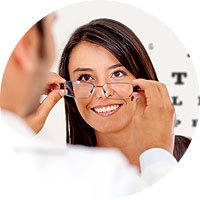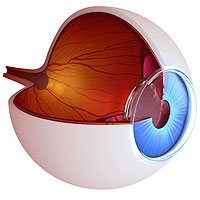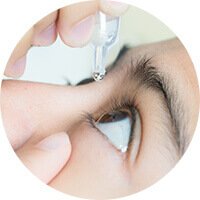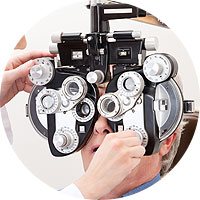
Cataracts are a common occurrence due to aging. Most people will experience them at some point in their lives.
But they develop slowly, usually over decades, and it can be hard to tell if you have them or not. Keep reading to learn more about cataracts and find out how to know if you have them!
Has Your Vision Changed?
Cataracts form in the natural lens of your eye when proteins in the lens break down and clump together. As they cling together, they cause the lens to become mirky and white.
Eventually, cataracts can become so thick that they block light from reaching your retina. But this process doesn’t happen immediately.
Usually, you begin to develop cataracts in your forties or fifties, but they don’t impact your eyesight until your sixties or seventies. That means they slowly cause your lens to become more opaque over time.
At first, they don’t block any light from flowing to your retina. However, cataracts get thick enough to interfere with that light as they develop.
But when they begin to filter some light from reaching your retina, you won’t notice. Your brain is adept at filling in images if your retina receives incomplete visual inputs.
You may have cataracts that block light, but you won’t be able to tell by what you see. Eventually, they will impact your vision, making your brain unable to make up for the lack of images.
At this point, they’ll cause your vision to be more dim, colors to be less vibrant, and can create glare and halos around lights. When this starts happening, it’s time to discuss cataract surgery with your eye doctor.
Is It Difficult to Go About Your Daily Routine?
With cataracts, you’ll be able to function normally, even if your vision is a bit dimmer than it used to be. In the earlier stages of cataract development, adjustments to your glasses prescription can make up for the changes in your eyesight.
Things like using more light and avoiding driving or other activities in the dark allow you to remain able to go about your daily routine. But, there will come a time when these minor adjustments don’t cut it anymore.
When cataracts begin to impact your daily life, it’s likely time for cataract surgery. If you start to have trouble handling tasks that never were an issue for you, it’s time to see your eye doctor to address your developing cataracts.
Have You Seen Your Eye Doctor?
The only accurate way to know if you have cataracts is to receive a diagnosis from your eye doctor. They can tell you whether cataracts are the reason for your vision impairment or if it’s due to something else.
In most cases, if you’re in your sixties or seventies, you have cataracts. When your eye doctor sees them in your lenses and you’re having trouble going about your day, they will open up the discussion of cataract surgery.
Is it time for you to have a cataract screening? Schedule an appointment at Eye Care Specialists in Scranton, PA, to see if it’s time to think about cataract surgery!

















